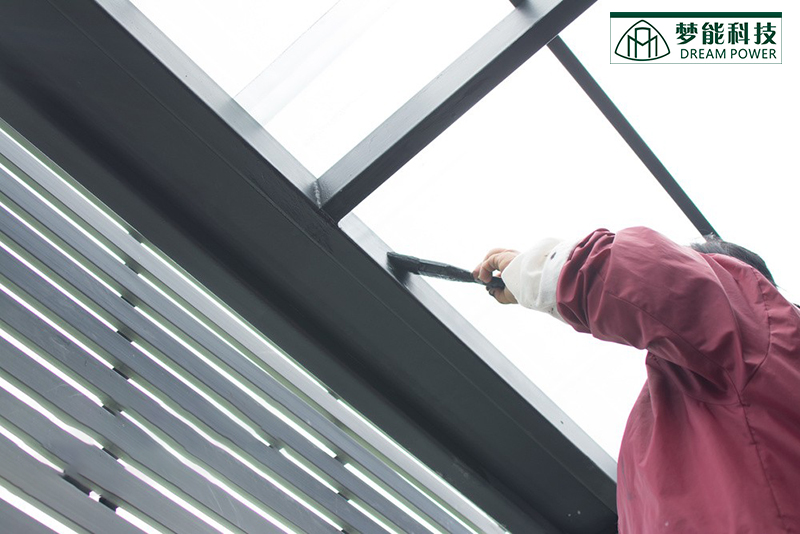Safety precautions in the application of anti-corrosion coatings.
Coating operations involve various hazard factors. Most raw and auxiliary materials in coating operations have combustible, explosive, and toxic properties, and some materials pose a dust hazard during the operation. Therefore, coating operations with corrosion-resistant coatings such as fluorocarbon coatings must pay attention to safe construction practices.

1. Work at Heights
Work at height refers to work performed above a certain reference level. When working in a building, operations conducted at a height of more than 2 meters are considered high-altitude work. In coating operations, accidents involving falls or being struck by objects from heights are the most common. Proper use of safety helmets, safety belts, or installing safety nets as required can effectively prevent accidents and injuries.
2. Electrical Hazards
Electrical hazards in coating operations can not only cause fires and explosions but also involve other safety issues. Electrical hazards include static electricity, lightning, and electrocution. Static electricity can cause electrical shock to the human body, leading to burns or explosions. Lightning can cause damage to electrical equipment and control systems, and harm to personnel. Electrocution accidents can occur suddenly, causing serious consequences in a very short time and endangering life safety.
3. Chemical Pollution and Toxic Injuries
Solvent-based coatings themselves have certain chemical hazards. In coating operations, it is important to be aware that solvents and thinners in coatings can cause air pollution and harm human health.
Fire and Explosion Risks: Solvent-based coatings and thinners used in coating operations are often flammable and explosive materials, so there are inherent fire and explosion risks in the coating operation itself. Possible causes of fire and explosion include failure to follow operating procedures during electrostatic coating, which can cause sparks; improper storage of waste coatings, mist, thinners, and used rags, which can lead to spontaneous combustion or ignition; improper selection or use of electrical equipment, or failure to repair damaged equipment in time; and lightning strikes during the rainy season.
4. Noise Hazards
Sounds exceeding 100 dB are considered strong noise. Working in such an environment temporarily reduces hearing but is recoverable. However, exposure to noise above 150 dB can lead to permanent hearing loss, which cannot be restored. Therefore, protective measures must be taken when noise levels exceed 85 dB. Noise levels may vary depending on the type of equipment and the location. Excessive noise requires hearing protection for workers.
5. Mengneng Technology
Mengneng Technology is a technology company dedicated to the sales of coatings, solution design, and coating construction. Mengneng specializes in corrosion-resistant coatings in industries such as EMI, industrial equipment manufacturing, bridge steel structures, petrochemical, specialty gas industries, thermal power, wind power, and hydroelectric energy. Mengneng provides comprehensive services, including recommending reasonable coating solutions during the design phase, providing high-quality products and construction services during collaboration, and offering complete on-site technical guidance and excellent after-sales services.